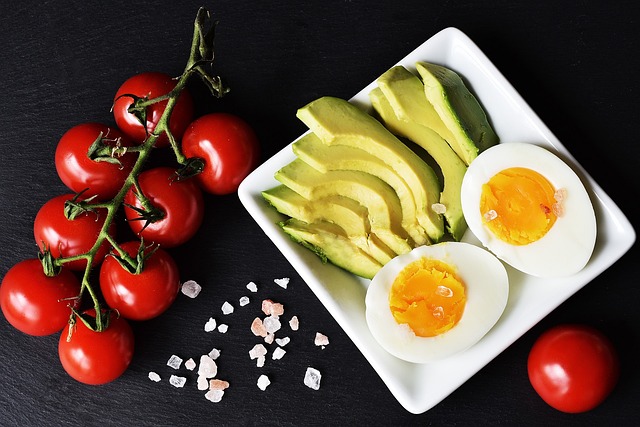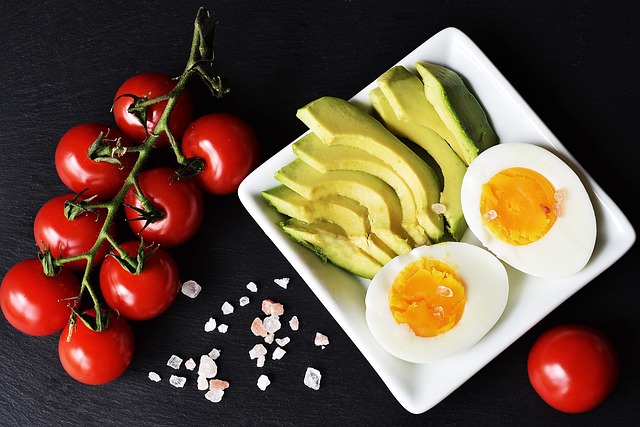Curious about how many calories you should consume on a keto diet as a woman? Well, you’ve come to the right place! In this article, we’ll cover all the details you need to know about calorie intake while following a keto diet. Whether you’re just starting your keto journey or have been on it for a while, understanding the right amount of calories for your body is crucial for achieving your health and weight loss goals.
If you’re wondering how many calories you should be consuming on a keto diet as a female, don’t worry, we’ve got you covered. In the upcoming article, we’ll explore factors such as age, weight, activity level, and goals to help you determine your ideal caloric intake. We’ll also dive into the importance of macronutrients and how they affect your body’s ability to reach and maintain a state of ketosis. So, keep reading to learn more about the optimal number of calories for you and how to make the most out of your keto lifestyle.
Understanding the Keto Diet
What is the Keto Diet?
The keto diet, short for ketogenic diet, is a low-carb, high-fat diet that has gained popularity for its potential health benefits. It involves significantly reducing carbohydrate intake and replacing it with fat. This dietary approach aims to put the body into a metabolic state called ketosis, where it primarily relies on fat for energy instead of glucose from carbohydrates.
How Does the Keto Diet Work?
When you follow the keto diet, you limit your carbohydrate intake to typically less than 50 grams per day. As a result, your body will eventually run out of glucose, its preferred fuel source derived from carbohydrates. To compensate for the lack of glucose, your body begins to break down stored fat into molecules called ketones, which can be used as an alternative source of energy.
Benefits of the Keto Diet
The keto diet has been associated with several potential benefits. One of the key advantages is weight loss. By restricting carbohydrate intake and promoting the utilization of fat for energy, the keto diet may help individuals shed excess pounds. It has also been found to have positive effects on blood sugar control, insulin sensitivity, and metabolic health.
Determining Calorie Intake on the Keto Diet
Importance of Calorie Intake on the Keto Diet
While the primary focus of the keto diet is on macronutrient ratios (fat, protein, and carbohydrate), the overall calorie intake still plays a crucial role in achieving your health and weight goals. Calories represent the amount of energy provided by the food and beverages you consume. In order to maintain, lose, or gain weight, it’s important to ensure that your calorie intake aligns with your specific needs.
Factors Affecting Calorie Needs on the Keto Diet
Several factors influence the number of calories you should consume on the keto diet. These include your age, gender, weight, height, activity level, and overall goals (weight loss, maintenance, or muscle gain). The keto diet, like any other diet, is not a one-size-fits-all approach. It’s essential to personalize your calorie intake based on your individual needs.
Calculating Calorie Requirements on the Keto Diet
To determine your calorie requirements on the keto diet, you can use an online calculator or consult with a registered dietitian. These tools take into account your personal information and activity level to estimate the daily calorie intake needed to achieve your goals. Keep in mind that the accuracy of these calculators can vary, so it’s always helpful to track your progress and make adjustments as needed.

Are You a Ketosis Master? Take Our Quiz!
Recommended Calorie Intake for Females on the Keto Diet
Understanding Energy Balance
Energy balance refers to the equilibrium between the calories consumed through food and beverages and the calories expended through metabolism and physical activity. To lose weight, it’s necessary to create a calorie deficit by consuming fewer calories than you burn. To maintain weight, the calories consumed should match the calories expended. Achieving a calorie surplus is generally required for weight gain.
Calorie Intake for Weight Loss on the Keto Diet
For females on the keto diet aiming for weight loss, a calorie deficit is necessary. The extent of the deficit depends on various factors, including your initial weight, rate of weight loss desired, and individual metabolism. However, it is generally recommended to start with a moderate deficit of around 10-20% below your maintenance calorie needs.
Calorie Intake for Weight Maintenance on the Keto Diet
If your goal is weight maintenance, it’s important to consume an appropriate amount of calories to maintain your current weight. This often involves calculating your total daily energy expenditure (TDEE) – the number of calories your body needs to sustain its current weight. To maintain weight on the keto diet, your calorie intake should align with your TDEE.
Customizing Calorie Intake for Individual Needs
It’s important to remember that these recommendations are general guidelines. Every individual has unique calorie requirements based on their body composition, metabolism, and other factors. It’s always a good idea to work with a registered dietitian or healthcare professional who can provide personalized recommendations tailored to your specific needs.
Key Considerations for Calorie Intake on the Keto Diet
Importance of Nutrient Density
When determining your calorie intake on the keto diet, it’s crucial to consider the nutrient density of the foods you consume. Nutrient-dense foods provide a wide range of essential vitamins, minerals, and other beneficial compounds. Prioritize whole, unprocessed foods such as lean meats, fish, poultry, eggs, vegetables, and healthy fats to ensure you get all the necessary nutrients while staying within your calorie limits.
Essential Nutrients on the Keto Diet
While the keto diet focuses on macronutrient ratios, it’s also essential to ensure an adequate intake of micronutrients. Certain nutrients may be at risk of deficiency on the keto diet due to the restricted food choices. This includes vitamins B, C, D, E, and K, as well as minerals like calcium, magnesium, and potassium. Incorporating a variety of nutrient-rich foods and considering supplementation can help prevent deficiencies.
Avoiding Nutrient Deficiencies
To avoid nutrient deficiencies on the keto diet, it’s important to plan your meals carefully and include a wide variety of foods. Incorporate low-carb vegetables, nuts, seeds, and healthy oils to ensure you’re getting a range of micronutrients. Regular blood work and consultations with a healthcare professional can also help identify and address any potential deficiencies.

Managing Calorie Intake on the Keto Diet
Tracking Macronutrients
To manage your calorie intake on the keto diet effectively, it can be helpful to track your macronutrient intake. This involves monitoring the grams of fat, protein, and carbohydrates you consume each day. There are various mobile apps and online tools available that can assist in tracking your food intake and calculating your macronutrient ratios.
Choosing Nutrient-Dense Foods
In addition to tracking your macronutrients, prioritize nutrient-dense foods on the keto diet. This will help ensure you’re meeting your micronutrient needs while staying within your calorie limits. Opt for foods like avocados, salmon, nuts, seeds, leafy greens, and other non-starchy vegetables that offer a wealth of nutrients without excessive carbohydrates.
Meal Planning and Preparing Keto Meals
Meal planning and preparation can be crucial in managing your calorie intake on the keto diet. By planning your meals in advance, you can ensure you have nutritious options readily available and minimize the temptation to consume high-calorie, low-nutrient foods. Preparing your meals allows you to control the ingredients and portion sizes, making it easier to stay within your desired calorie range.
Balancing Macronutrient Ratios on the Keto Diet
Determining Optimal Macronutrient Ratio
The keto diet typically involves a specific macronutrient ratio: high fat, moderate protein, and low carbohydrate. However, the optimal macronutrient ratio can vary depending on individual factors and goals. It’s important to experiment with different ratios and monitor your body’s response to determine the most suitable balance for you.
Understanding Fat, Protein, and Carb Ratios
On the keto diet, the macronutrient ratio may range from 70-75% fat, 20-25% protein, and 5-10% carbohydrates. The exact ratio can be adjusted based on individual needs and preferences. Keep in mind that these percentages refer to calories, not grams. For example, if you consume 1500 calories per day, 70% of those calories should come from fat.
Adapting Ratios for Individual Needs
Individual needs may require adjustments to the standard macronutrient ratio on the keto diet. For example, athletes or individuals with a higher activity level may require slightly more carbohydrates to support performance and recovery. It’s important to listen to your body, monitor your progress, and make necessary adjustments to find the macronutrient ratio that works best for you.

Importance of Physical Activity on the Keto Diet
Benefits of Exercise on the Keto Diet
Incorporating physical activity into your keto lifestyle can offer numerous benefits. Exercise not only helps burn calories and contribute to weight loss but also improves cardiovascular health, enhances mood, boosts metabolism, and supports overall well-being. Regular physical activity is a key component of a healthy lifestyle, regardless of the specific diet you follow.
Types of Exercise Suitable for the Keto Diet
Various forms of exercise can be suitable for individuals on the keto diet. Resistance training, cardio activities, high-intensity interval training (HIIT), and low-impact exercises like yoga or Pilates can all be incorporated into your fitness routine. Choose activities that you enjoy and that align with your fitness goals to ensure long-term adherence and sustainable results.
Adjusting Calorie Intake Based on Activity Levels
If you’re on the keto diet and engaging in regular physical activity, you may need to adjust your calorie intake accordingly. Higher activity levels require more energy, which can be achieved by consuming slightly more calories. However, it’s essential to strike a balance and not overcompensate for exercise by eating excessively, as this could hinder weight loss efforts.
Effects of Calorie Restriction on the Keto Diet
Potential Benefits of Calorie Restriction
Calorie restriction, when done correctly and under proper guidance, can offer several benefits on the keto diet. It can lead to weight loss, improved insulin sensitivity, reduced inflammation, and enhanced metabolic rate. Additionally, calorie restriction combined with the metabolic changes induced by the keto diet can potentially promote autophagy, a cellular repair process linked to longevity and overall health.
Considerations in Calorie Restriction
While calorie restriction can be beneficial, it’s important to approach it with caution. Severely restricting calories can lead to nutrient deficiencies, impaired hormonal functioning, decreased muscle mass, and a slowed metabolism. It’s crucial to strike a balance by ensuring adequate nutrient intake and consulting with a healthcare professional or registered dietitian to avoid any negative consequences.
Avoiding Extreme Calorie Restriction
Extreme calorie restriction is not recommended, especially without proper guidance. Very low-calorie diets can be unsustainable, promote muscle loss, and negatively impact overall health. It’s important to prioritize nutrient-dense foods and create a moderate calorie deficit that supports weight loss without compromising essential nutrient intake.

Monitoring and Adjusting Calorie Intake on the Keto Diet
Importance of Regular Monitoring
Regular monitoring of your calorie intake and progress is key to achieving your goals on the keto diet. Keeping a food diary, using tracking apps, or working with a healthcare professional can help you stay accountable and identify any areas that need adjustment. By regularly assessing your calorie intake and progress, you can make necessary modifications and fine-tune your approach.
Signs of Inadequate Calorie Intake
Inadequate calorie intake on the keto diet can hinder weight loss and negatively impact overall health. Signs of inadequate calorie intake may include fatigue, low energy levels, irritability, poor concentration, frequent hunger, decreased exercise performance, and disrupted sleep patterns. If you experience any of these symptoms, it may be an indication that your calorie intake needs adjustment.
When and How to Adjust Calorie Intake
Adjusting your calorie intake on the keto diet should be done gradually and based on your progress and goals. If you aren’t experiencing the desired weight loss or are struggling with energy levels, it may be necessary to slightly decrease or increase your calorie intake. Consulting with a registered dietitian or healthcare professional can provide valuable guidance in determining the appropriate adjustments for your specific needs.
Conclusion
Determining your calorie intake on the keto diet is essential for achieving your health and weight goals. It’s crucial to personalize your calorie intake based on your individual needs, considering factors like age, gender, weight, activity level, and overall objectives. Balancing macronutrient ratios, prioritizing nutrient-dense foods, engaging in regular physical activity, and monitoring your progress are all important strategies to optimize your calorie intake and maximize the benefits of the keto diet. By taking a personalized and holistic approach, you can enjoy the potential advantages of this popular dietary approach.
